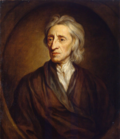Introduction
Libertarianism (from French: libertaire, lit. 'free and egalitarian'; or from Latin: libertas, lit. 'freedom') is a political philosophy that holds freedom, personal sovereignty, and liberty as primary values. Many libertarians believe that the concept of freedom is in accord with the Non-Aggression Principle, according to which each individual has the right to live as they choose, as long as they do not violate the rights of others by initiating force or fraud against them.
Libertarians advocate the expansion of individual autonomy and political self-determination, emphasizing the principles of equality before the law and the protection of civil rights, including the rights to freedom of association, freedom of speech, freedom of thought and freedom of choice. They generally support individual liberty and oppose authority, state power, warfare, militarism and nationalism, but some libertarians diverge on the scope and nature of their opposition to existing economic and political systems. (Full article...)
Selected article
Minarchism is a libertarian political ideology which maintains that the state's only legitimate function is the protection of individuals from aggression, theft, breach of contract and fraud (such states are sometimes called night watchman states). Some minarchists defend the existence of the state as a necessary evil. Minarchism is closely associated with right-libertarianism, propertarianism and classical liberalism.
Samuel Edward Konkin III, an agorist, coined the term in 1971 to describe libertarians who defend some form of compulsory government. Konkin invented the term "minarchism" because he initially felt dismayed of using the cumbersome phrase "limited-government libertarianism".
Selected quote
| “ | Though he expresses a classical liberal doctrine, Humbdolt is no primitive individualist, in the style of, for example, Rousseau. Rousseau extols the savage who "lives within himself," but Humboldt's vision is entirely different. He sums up his remarks, saying that
the whole tenor of the ideas and arguments unfolded in this essay might fairly be reduced to this, that while they would break all fetters in human society, they would attempt to find as many new social bonds as possible. The isolated man is no more able to develop than the one who is fettered. And he in fact looks forward to a community of free association without coercion by the state or other authoritarian institutions, in which free men can create, inquire, and achieve the highest development of their powers. In fact, far ahead of his time, he presents an anarchist vision that is appropriate perhaps to the next stage of industrial society. We can perhaps look forward to a day when these various strands will be brought together within the framework of libertarian socialism, a social form that barely exists today, though its elements can perhaps be perceived, for example, in the guarantee of individual rights that has achieved so far its fullest realization—though still tragically flawed—in the Western democracies; in the Israeli kibbutzim; in the experiments of workers' councils in Yugoslavia; in the effort to awaken popular consciousness and create a new involvement in the social process, which is a fundamental element in the Third World revolutions that coexists uneasily with indefensible authoritarian practices. To summarize, the first concept of the state that I want to establish as a point of reference is classical liberalism. Its doctrine is that state functions should be drastically limited. But this familiar characterization is a very superficial one. More deeply, the classical liberal view develops from a certain concept of human nature one that stresses the importance of diversity and free creation, and therefore this view is in fundamental opposition to industrial capitalism with its wage slavery, its alienated labor, and its hierarchic and authoritarian principles of social and economic organization. At least in its ideal form, classical liberal thought is opposed to the concepts of possessive individualism, that are intrinsic to capitalist ideology. For this reason, classical liberal thought seeks to eliminate social fetters and to replace them with social bonds, and not with competitive greed, predatory individualism, and not, of course, with corporate empires-state or private. Classical libertarian thought seems to me, therefore, to lead directly to libertarian socialism, or anarchism if you like, when combined with an understanding of industrial capitalism. |
” |
| — Noam Chomsky (1928) Government in the Future at the Poetry Center (1970) |
Selected picture
 |
General images
Selected biography -
Walter Edward Block (born August 21, 1941) is an American Austrian School economist and anarcho-capitalist theorist. He was the Harold E. Wirth Eminent Scholar Endowed Chair in Economics at the School of Business at Loyola University New Orleans and a former senior fellow of the non-profit think-tank Ludwig von Mises Institute in Auburn, Alabama. (Full article...)
Related portals
Parent portals
Socio-political portals
Topics
Categories
Points of interest
| Points of interest related to Libertarianism on Wikipedia: History – Portal – Category – WikiProject – Alerts – Deletions – Assessment |
Associated Wikimedia
The following Wikimedia Foundation sister projects provide more on this subject:
-
Commons
Free media repository -
Wikibooks
Free textbooks and manuals -
Wikidata
Free knowledge base -
Wikinews
Free-content news -
Wikiquote
Collection of quotations -
Wikisource
Free-content library -
Wikiversity
Free learning tools -
Wiktionary
Dictionary and thesaurus
© MMXXIII Rich X Search. We shall prevail. All rights reserved. Rich X Search




































